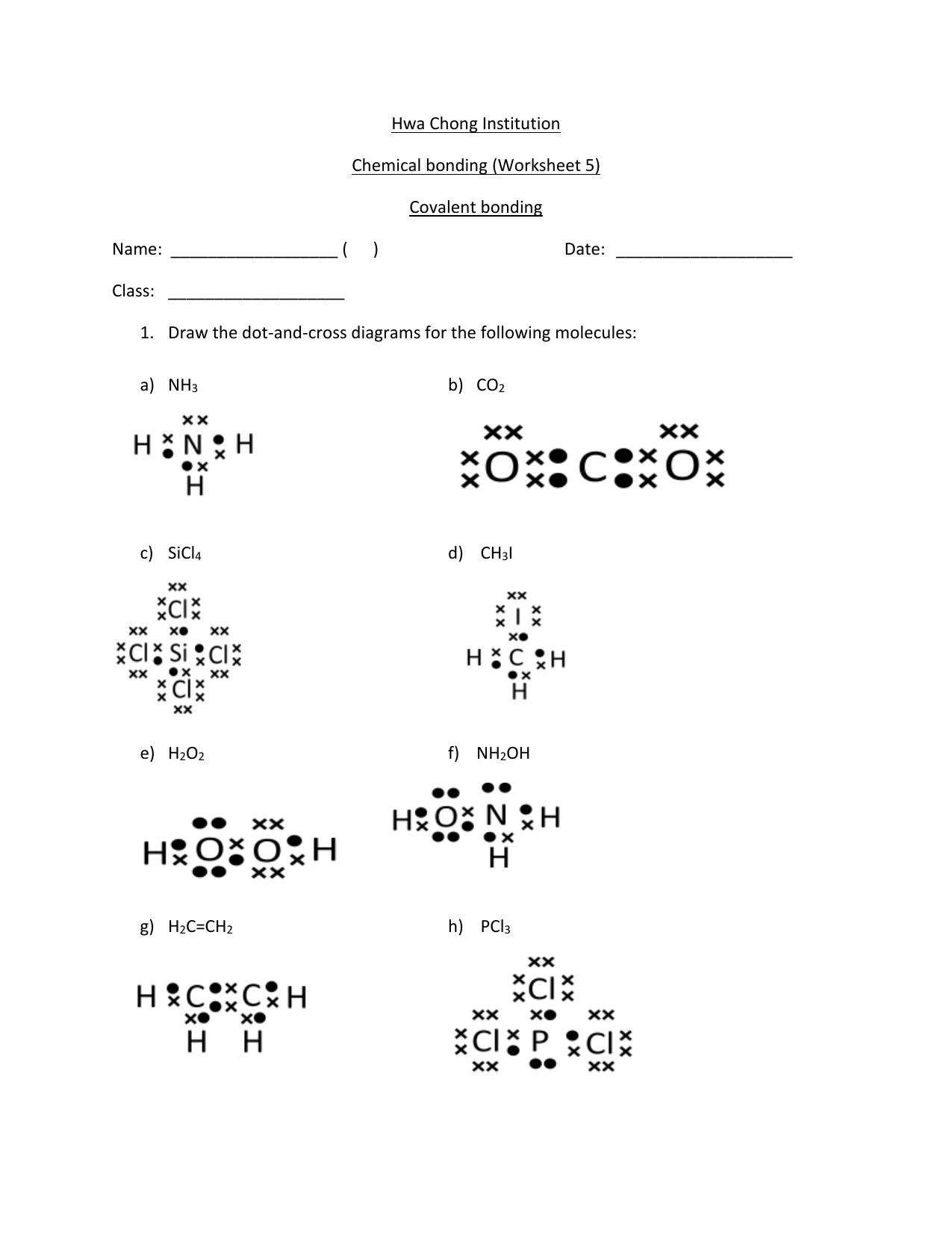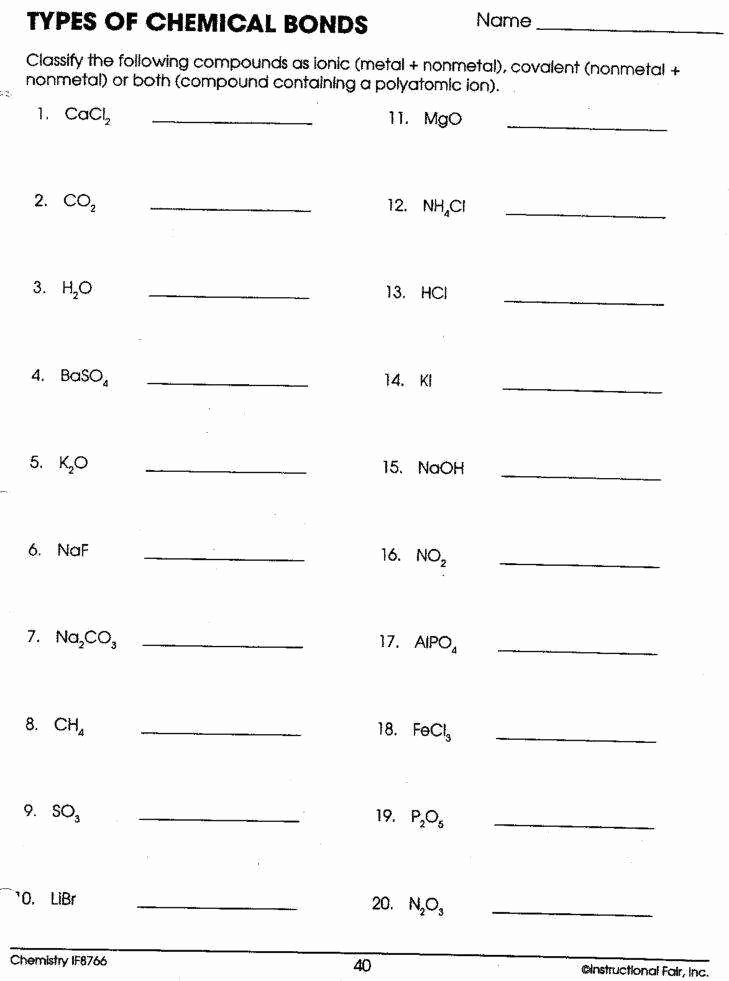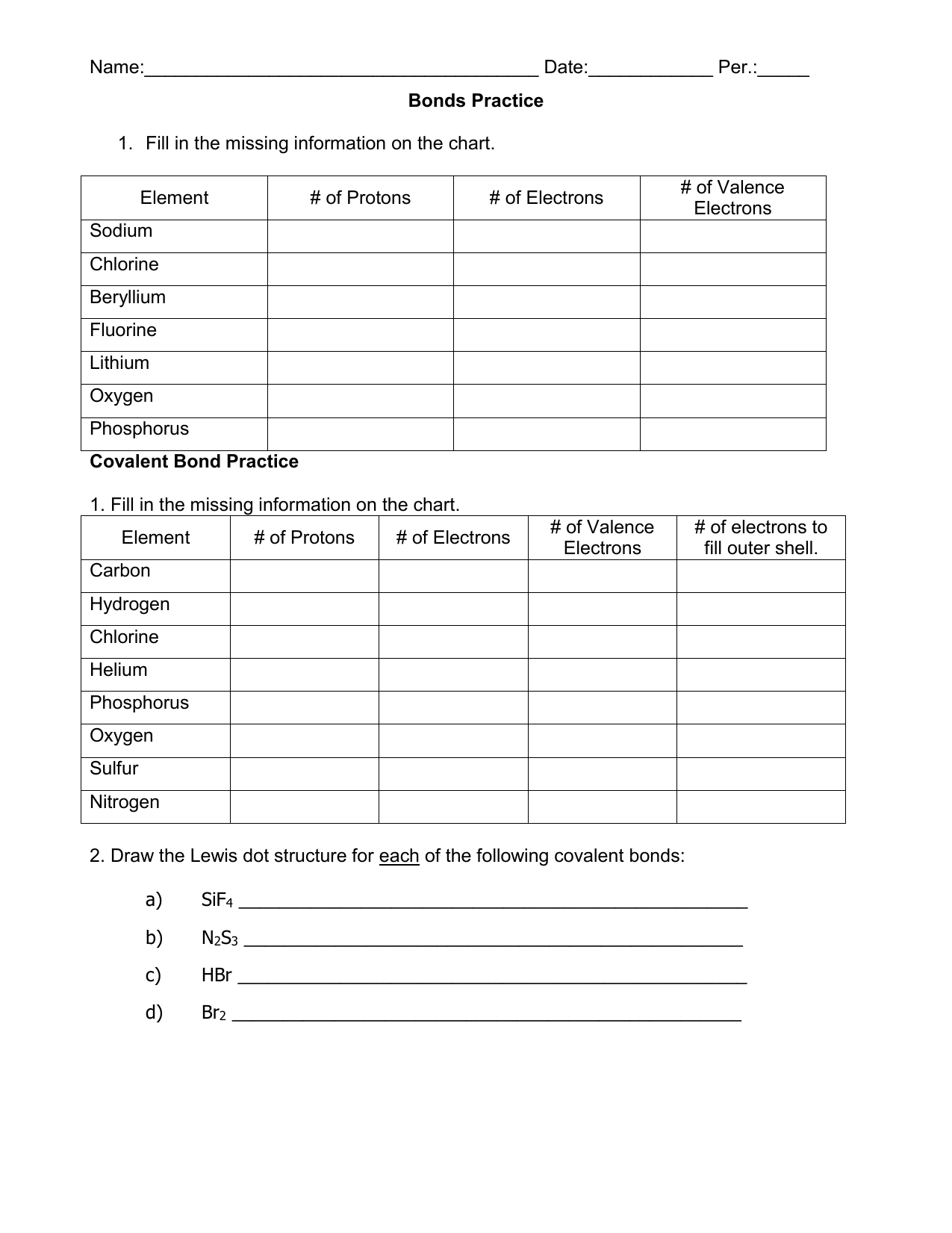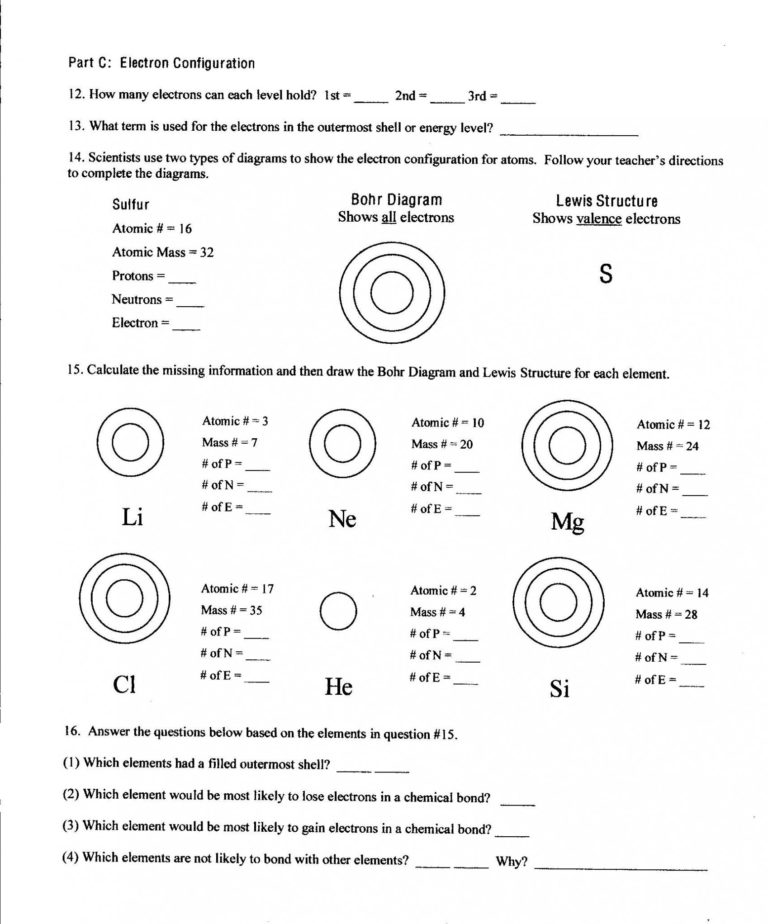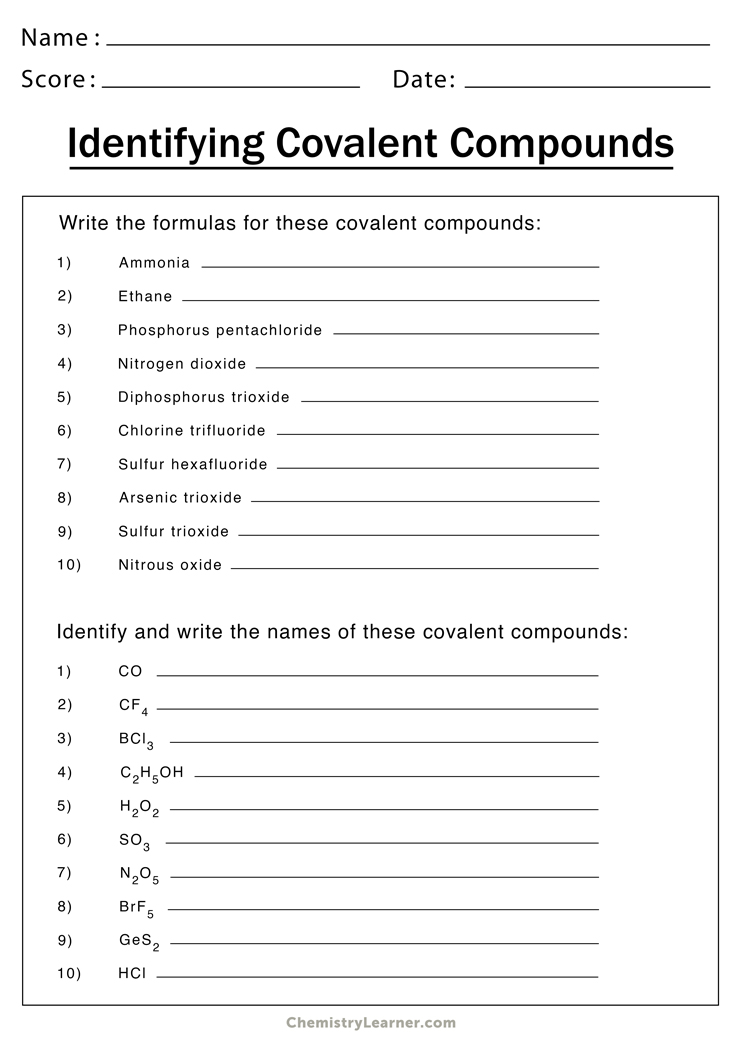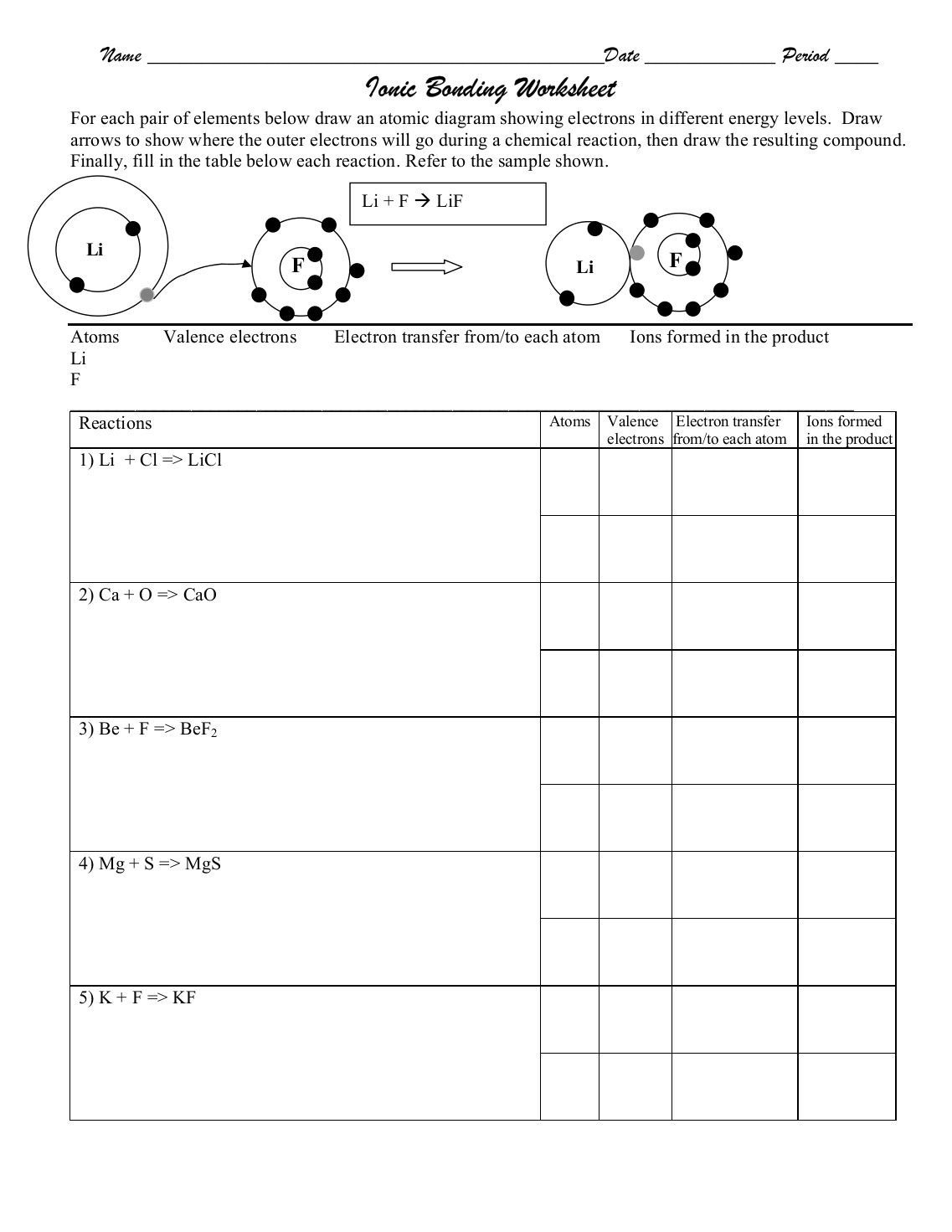Covalent Bonding Practice Worksheet
Covalent Bonding Practice Worksheet - List the elements that can form. Write a simple rule that will allow. Use lewis dot structures to show the ionic bonding in the following pairs of elements. Model 1 substances are called ionic compounds and model 2 substances are called covalent molecules. Scaffolded, partially scaffolded and unscaffolded. This resource features three different versions of a worksheet on bonding: These worksheets are meant to test what a student knows about covalent bonding. Show the transfer of electrons using arrows. Grade 7, grade 8, grade 9, grade 10, grade. Practicing using dot and cross diagrams.
Use lewis dot structures to show the ionic bonding in the following pairs of elements. Write a simple rule that will allow. This resource features three different versions of a worksheet on bonding: Model 1 substances are called ionic compounds and model 2 substances are called covalent molecules. Grade 7, grade 8, grade 9, grade 10, grade. These worksheets are meant to test what a student knows about covalent bonding. List the elements that can form. Scaffolded, partially scaffolded and unscaffolded. Practicing using dot and cross diagrams. Show the transfer of electrons using arrows.
Write a simple rule that will allow. Show the transfer of electrons using arrows. These worksheets are meant to test what a student knows about covalent bonding. Model 1 substances are called ionic compounds and model 2 substances are called covalent molecules. Practicing using dot and cross diagrams. List the elements that can form. Use lewis dot structures to show the ionic bonding in the following pairs of elements. This resource features three different versions of a worksheet on bonding: Scaffolded, partially scaffolded and unscaffolded. Grade 7, grade 8, grade 9, grade 10, grade.
Free covalent bonds worksheet, Download Free covalent bonds worksheet
Show the transfer of electrons using arrows. Use lewis dot structures to show the ionic bonding in the following pairs of elements. Practicing using dot and cross diagrams. Model 1 substances are called ionic compounds and model 2 substances are called covalent molecules. This resource features three different versions of a worksheet on bonding:
Covalent Bonding Worksheet —
This resource features three different versions of a worksheet on bonding: Practicing using dot and cross diagrams. Show the transfer of electrons using arrows. List the elements that can form. Scaffolded, partially scaffolded and unscaffolded.
Worksheet On Chemical Bonding
Write a simple rule that will allow. Practicing using dot and cross diagrams. Scaffolded, partially scaffolded and unscaffolded. Model 1 substances are called ionic compounds and model 2 substances are called covalent molecules. Show the transfer of electrons using arrows.
covalent bond practice
Model 1 substances are called ionic compounds and model 2 substances are called covalent molecules. Write a simple rule that will allow. Practicing using dot and cross diagrams. This resource features three different versions of a worksheet on bonding: Scaffolded, partially scaffolded and unscaffolded.
Covalent Bonding Practice Worksheet Answers Worksheet Now
Scaffolded, partially scaffolded and unscaffolded. This resource features three different versions of a worksheet on bonding: Show the transfer of electrons using arrows. Use lewis dot structures to show the ionic bonding in the following pairs of elements. Grade 7, grade 8, grade 9, grade 10, grade.
Chemistry Covalent Bonding Worksheet
Show the transfer of electrons using arrows. Model 1 substances are called ionic compounds and model 2 substances are called covalent molecules. Use lewis dot structures to show the ionic bonding in the following pairs of elements. List the elements that can form. Scaffolded, partially scaffolded and unscaffolded.
Covalent Bonding Practice Worksheet
Show the transfer of electrons using arrows. Practicing using dot and cross diagrams. List the elements that can form. Use lewis dot structures to show the ionic bonding in the following pairs of elements. Grade 7, grade 8, grade 9, grade 10, grade.
Covalent Bonding Practice Worksheet Answers Worksheet Now
This resource features three different versions of a worksheet on bonding: Use lewis dot structures to show the ionic bonding in the following pairs of elements. Practicing using dot and cross diagrams. Model 1 substances are called ionic compounds and model 2 substances are called covalent molecules. Scaffolded, partially scaffolded and unscaffolded.
Chemistry Covalent Bonding Worksheet Answers
Grade 7, grade 8, grade 9, grade 10, grade. List the elements that can form. Use lewis dot structures to show the ionic bonding in the following pairs of elements. Show the transfer of electrons using arrows. Model 1 substances are called ionic compounds and model 2 substances are called covalent molecules.
Covalent Bonding Naming Worksheet
Write a simple rule that will allow. Grade 7, grade 8, grade 9, grade 10, grade. Practicing using dot and cross diagrams. Show the transfer of electrons using arrows. Model 1 substances are called ionic compounds and model 2 substances are called covalent molecules.
This Resource Features Three Different Versions Of A Worksheet On Bonding:
Scaffolded, partially scaffolded and unscaffolded. Use lewis dot structures to show the ionic bonding in the following pairs of elements. Show the transfer of electrons using arrows. Model 1 substances are called ionic compounds and model 2 substances are called covalent molecules.
Practicing Using Dot And Cross Diagrams.
Write a simple rule that will allow. These worksheets are meant to test what a student knows about covalent bonding. List the elements that can form. Grade 7, grade 8, grade 9, grade 10, grade.

